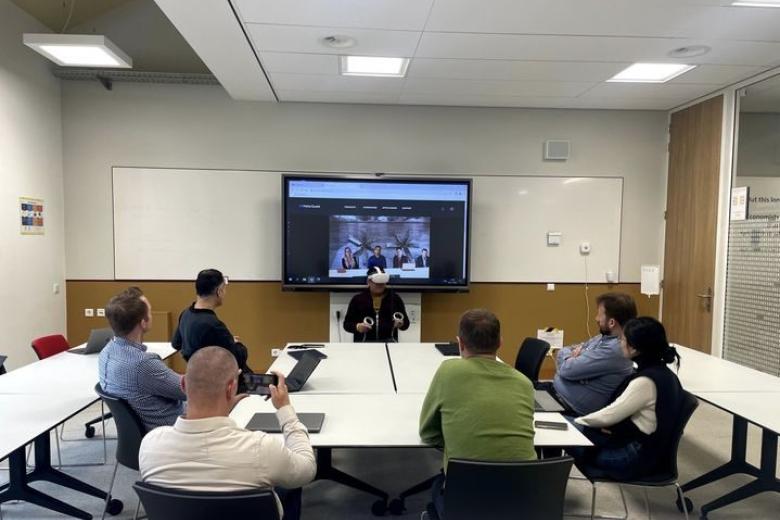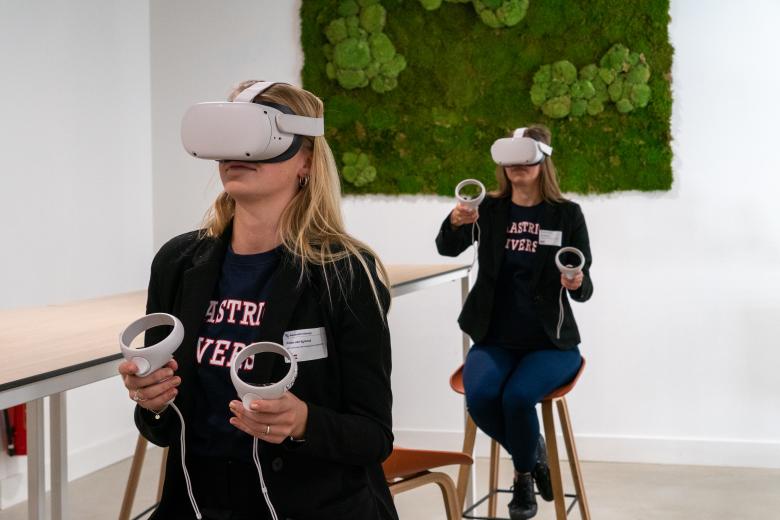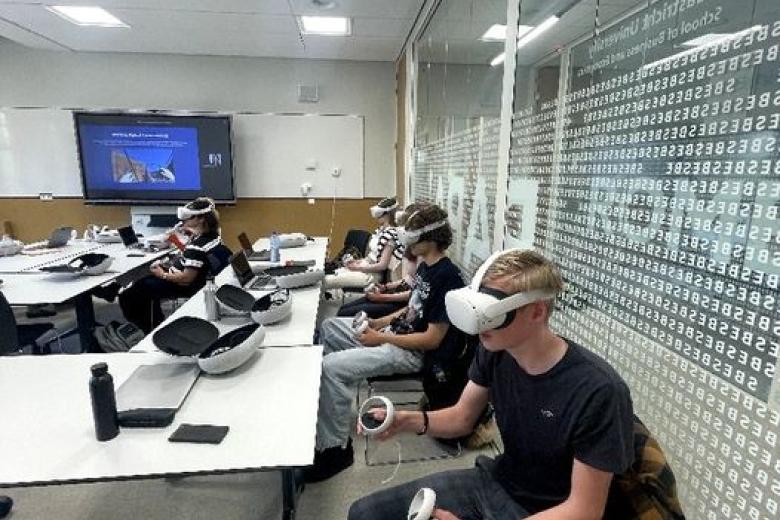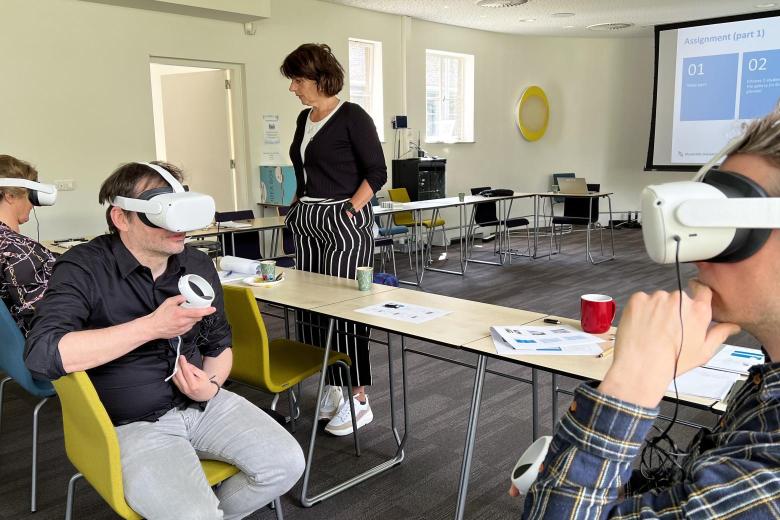Extended Reality (XR) at Maastricht University
Explore how virtual worlds are shaping the future of learning
Extended Reality (XR) is changing how we teach and learn at Maastricht University. From practising medical procedures in a safe environment to exploring historical sites or collaborating in virtual spaces, XR is already part of education at UM.
By combining immersive technologies with our Problem-Based Learning (PBL) approach, we create learning experiences that are both innovative and aligned with our core principles: Contextual, Collaborative, Constructive and Self-directed (CCCS).
This work supports UM’s strategic focus on educational innovation and helps prepare students for a digital future.
We also work with partners in vocational schools, universities of applied sciences and research universities to explore how XR can best support education. Together, we aim to make XR more accessible and sustainable across the sector.
Workshops and events
- Several dates in June 2025: Maastricht University Library VR pilot sessions
- 25-27 June 2025: XR-Metaverse Conference (XRM 2025) hosted by SBE
- 2 July 2025: National XR-day (Npuls, Rotterdam)
9-11 July 2025: ICVR25 Wageningen
What is XR and how it can enhance your education
Extended Reality (XR) is a promising educational technology that includes augmented, mixed and virtual reality. It allows users to immerse themselves in realistic scenarios by blending or simulating real and digital environments.
- Augmented reality or AR: an interactive experience that enhances the real world with computer-generated perceptual information
- Mixed reality or MR: which overlays the real world with digital elements, and the physical and digital objects co-exist and react to each other in real time
- Virtual reality or VR: a computer-generated environment with scenes and objects that appear real, immersing the user in their surroundings.
What is already available
UM XR network
The VR-enhanced PBL project led to the establishment of the UM XR network, connecting UM tech labs and VR specialists. DEXLab chairs the first year of the VR network that officially kicked off in June 2024.
The network is open to all UM staff and students who are interested in exploring the possibilities of XR.
Resources and support for XR at Maastricht University
Extended Reality (XR) is gradually finding its place in education at Maastricht University. With VR headsets available at all faculties, students and staff can explore immersive tools for learning, teaching and research. This section highlights UM spaces and initiatives that support XR use and development.

VR-enhanced PBL project
The VR-enhanced PBL project, produced by EDLAB and DEXLab in April 2024, explores the benefits of integrating VR technology into PBL classrooms and presents a comprehensive framework for implementation.
To explore this question, the VR-enhanced PBL project tested a range of XR applications across faculties. From presentation skills training to immersive case studies, these pilots offered insight into what works, what needs improvement, and how XR might complement existing educational approaches.

Research outcomes
Do you want to implement XR in your teaching but are not sure where to start? Here are five key considerations based on our research:
1. Align XR activities with learning outcomes
2. Use XR as a complementary tool, not a replacement
3. Choose between active and passive XR experiences
4. Make XR accessible for self-directed learning
5. Consider ethical and privacy implications

Regional and national developments on XR
At a regional level, Maastricht University and Zuyd University of Applied Sciences are part of the Limburg Immersive Technologies (LIT) Network, which connects academia, industry, and society to shape the future of XR in the Euregion.
At a national level, Npuls and educational institutions have launched a programme to ensure that XR continues to be used in practice after the initial experimentation phase.
